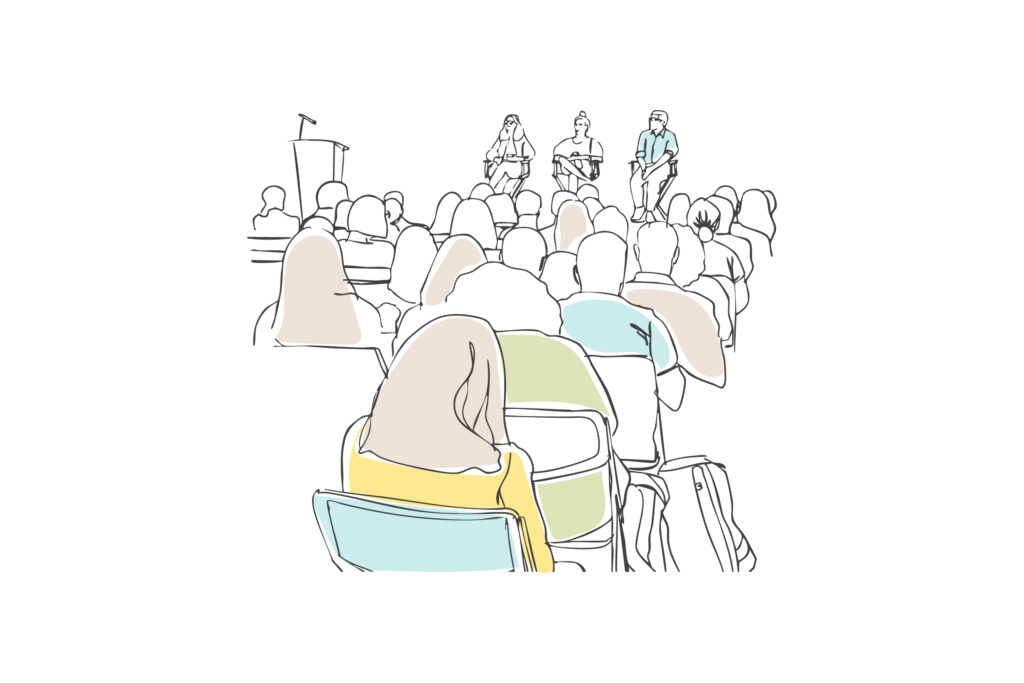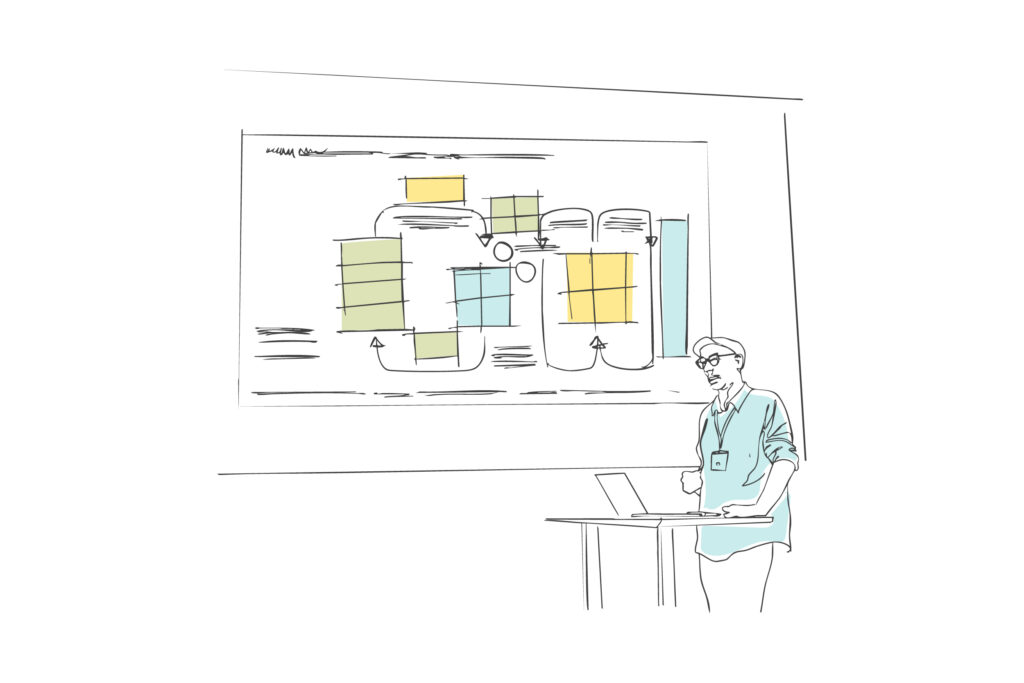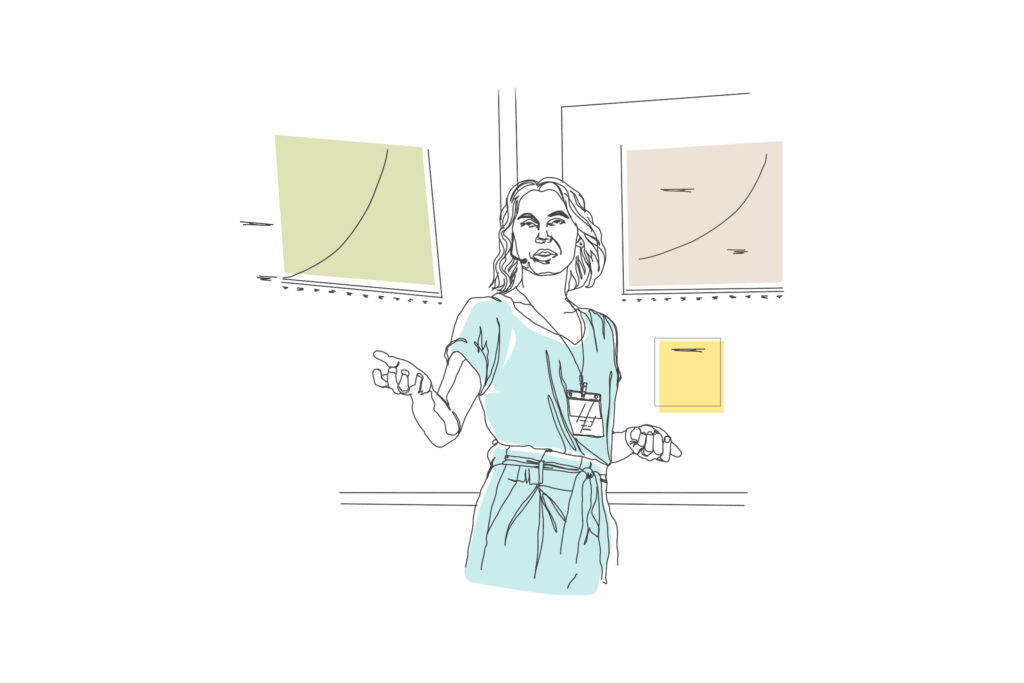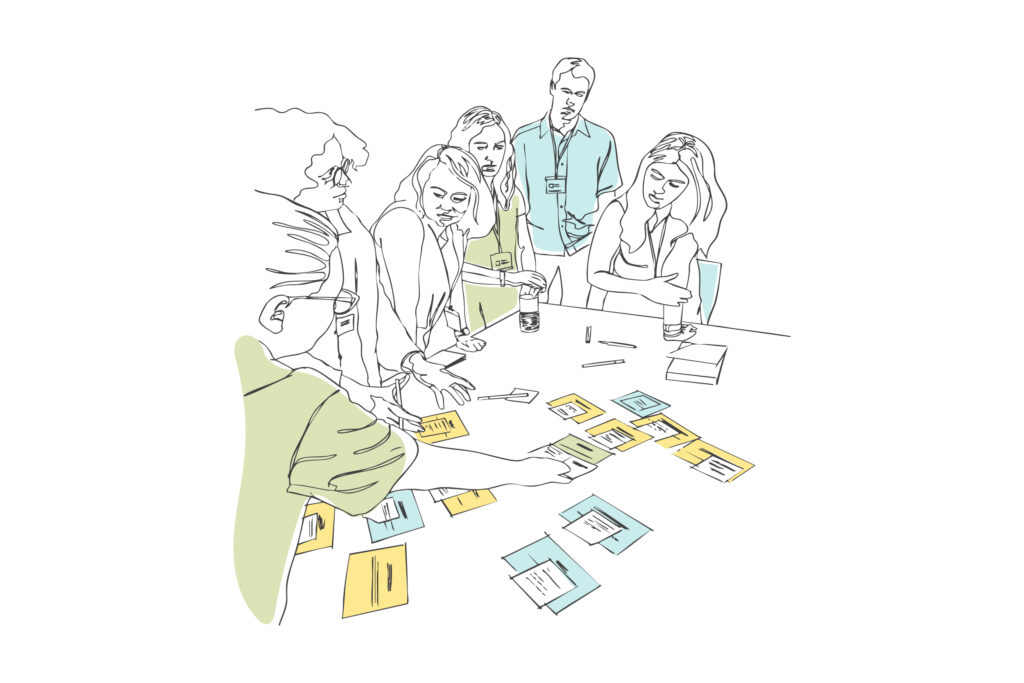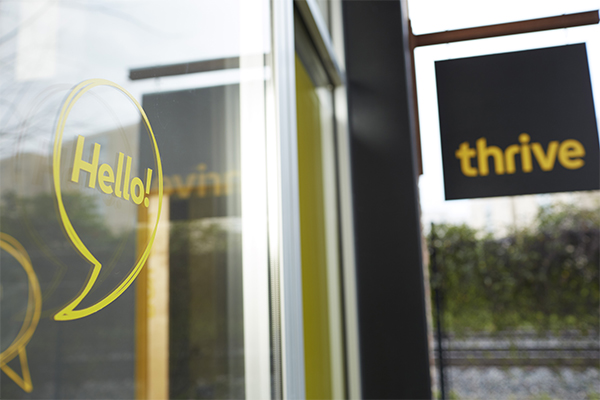Resistance, Recovery, Reflection and Reimagination: Insights from the 2024 Design Research Society Conference
This year, I had the pleasure of attending the Design Research Society’s conference, one of the foremost conferences for design research practitioners. The event was Hosted by Northeastern in Boston, a bastion of higher education that allowed attendees to enjoy the campuses of Harvard, MIT, and Northeastern. Surrounded by a legacy of academic thought, intellectual rigor, and spaces often reserved for the privileged few, the conference took up a bold theme: Resistance, Recovery, Reflection, and Reimagination.
At THRIVE, our work spans various industries—from healthcare and consumer goods to B2B services. As complexity increases across these sectors, new questions about the future are constantly emerging. The fast pace of analysis and execution often leaves little room for the deep, introspective work of reflection and reimagination, which is critical to building new models and systems that a just world demands. As the conference organizers stated:
“…As designers, we see the themes of resistance, recovery, reflection, and reimagination as ways of opening up alternative methodologies for the design field to reconsider our knowledge, methods, and approaches…Importantly, we must participate in the reimagining of our ways of life with attention to design justice.”
Given the complex and dynamic challenges that our work tackles and the far-reaching implications of the recommendations we are positioned to offer, I was eager to spend a few days immersed in this rich exchange of ideas with colleagues. Through keynotes, paper presentations, and workshops, we collectively examined these themes, exploring how they shape how we approach and conduct our design research.
With 28 thematic tracks, attendees engaged in a wide array of learning spaces, from design in relationship to healthcare and governance to education, retail, making and manufacturing, ethics, and more. Over the week-long conference, I noticed a few key themes resonated across topics.
EMPHASIS ON CARE
Whether considering topics of care delivery, care in interacting with research participants, or the quality of caring in philosophic and artistic expressions — the concept of care was at the forefront of many conversations.
The increase in automation, digital intermediaries, and emerging technologies introduces new dynamics that require conversations about the rightful role humans play in preserving a balanced and healthy society. While many new technologies hold potential to address critical needs, the pace of rollout can exacerbate or create new issues that need time to work through. Centering care and community can allow for the proper use of technologies and rising AI.
In the near future, the role of people in work and society will undeniably be affected and altered. As Yuval Harari states, “We’ll need a lot of therapists; we’ll need community organizers; we’ll even need philosophers. Suddenly, big tech companies need people who understand philosophical questions deeply because they become technical questions. We need a lot of people to take care of other people. In a way, it is easier to automate the job of a coder than the job of a nurse…partly because it demands a much wider range of abilities.” His comments shed light on the elevation of care-based work that will be critical moving forward.
The act of care becomes a radical counter to the rise of inhuman technology. Articulating visions of a healthy and harmonious integration of people and technology is essential. What models of people-led care can we begin to imagine, prototype, and support?
TRUST, SAFETY, & ACCOUNTABILITY
Trust, safety, and accountability are center stage yet still at the margins in many ways. Industry and academia struggle to address the actions needed to facilitate, develop, and embody these concepts.
In the conference keynote, “Resistance: Alternative Reimaginings of AI,” Dr. Beth Coleman addressed instances of technology “glitching” or “hallucinating.” Dr. Coleman noted that when access to data training is limited or closed, adversarial relationships with technology become the only way to access what is happening behind the technology. Those seeking to use or understand the technology may only be able to demonstrate the technology’s inadequacies by intentionally glitching the system. When an adversarial dynamic takes root, this will erode any sense of trust between individuals and communities interacting with technologies and associated organizations.
To build safe and reliable technologies, serious guidelines for transparency and accountability must be instituted. These principles must be discussed in meaningful ways that both invite foundational understanding and inform action and plans. Clarity and specificity in the discussion of these themes are required to identify the guidelines that can be applied in the development of ethical and safe technologies. It is important to note that this is a conversation that requires diverse and inclusive voices at the table.
As practitioners we might begin by surveying examples of design audits that have demonstrated commitment to accountability. How might we develop processes that are transparent, responsive, and capable of addressing and correcting harms? What are our blind-spots when designing systems, products, and service? What impacted populations and perspectives on the ground need to be included and consulted?
BRIDGING THE GAP BETWEEN THEORY AND PRACTICE
It often feels like design exists in two distinct worlds: academia and industry, each speaking its own language. Academics focus on process rigor and the intrinsic value of inquiry, while industry professionals prioritize efficiency, looking for tools and methods to measure tangible impact.
For those of us working on the business side of design, communicating insights and implementation strategies across siloed teams can be challenging. So, how can we bridge this gap? How can we translate the frameworks developed in academia into practical applications in business? How can we incorporate new academic findings into industry practices? And perhaps most importantly, how can we devise new approaches to metrics that capture real-world impact?
As the world evolves, there’s an opportunity for meaningful collaboration between academia and industry. By working together, we can develop innovative metrics that measure success, progress, and change in creative ways—particularly in addressing complex environmental and social challenges that demand urgent attention.
____
Ready to make design research a strategic imperative for your business?
"*" indicates required fields
____
ABOUT THRIVE
THRIVE is a strategic design firm innovating at the frontiers of health and well-being.
We work with ambitious leaders to create experiences that people love through Informed Design™. Our work gives leaders, teams, and organizations the courage and conviction to move confidently forward and design what’s next. You can find our innovations positively impacting lives in homes, hospitals, and businesses around the world.
We help you design growth in eight ways:
1. SHIFT PERSPECTIVE: We help you see customers with fresh eyes so you can find disruptive insights that let you tap into game-changing opportunities.
2. ACTIVATE INSIGHT: We distill insights into simple, actionable frameworks that are powerful and easy to understand so you can make smart decisions.
3. SEIZE NEW OPPORTUNITY: We find new ways for you to compete and new markets to scale, then prioritize ideas with the greatest potential.
4. SHAPE THE FUTURE: We develop actionable plans that generate growth through innovation so you can set a vision and step into your future.
5. ACCELERATE TIME TO MARKET: Our processes enable you to operate agilely, seize opportunities, and get products to market quickly and effectively.
6. CREATE SERIOUS BRAND LOVE: Our human-centered, holistic approach to brands delivers big-on emotion to keep consumers coming back.
7. CONQUER COMPLEXITY: We can help you tame complexity, achieve clarity, and make products and services easy to understand and a joy to use.
8. EMPOWER CHANGE: We help businesses shift their mindsets, foster new partnerships, and create momentum for innovation and growth.
ATLANTA | CHICAGO

